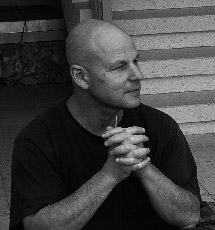 Since the TED Open Translation Project launched in May of 2009, more than 1,200 translators have joined the effort to make TEDTalks available in non-English languages. One of the very first translators to join the project was Shlomo Adam. Shlomo joined the project before it went public, and contributed both translations and feedback on the system as we built it. He has now translated more than 50 talks into Hebrew.
Since the TED Open Translation Project launched in May of 2009, more than 1,200 translators have joined the effort to make TEDTalks available in non-English languages. One of the very first translators to join the project was Shlomo Adam. Shlomo joined the project before it went public, and contributed both translations and feedback on the system as we built it. He has now translated more than 50 talks into Hebrew.
In the next weeks, the TED Blog will shine the spotlight on more TED translators — offering a glimpse of the people whose efforts continue to enrich the project. We’re proud to make Shlomo our first.
Tell us about yourself.
I’m 55. I was born in Israel. I’ve gone through all kinds of phases in my life. Now live in Kibbutz Mishmar Ha-Emek in Jezrael valley, half an hour’s drive away from Nazareth, five minutes’ drive away from Megiddo. Not that this means anything.
I’ve had the questionable privilege of having learned many practices, including four years of how to be a professional soldier — but that was many years ago when I was young and stupid. (Now I’m merely older.) Eventually it turned out that the things I’m most interested in are:
- The Alexander Technique, which I teach
- People of all kinds and realms
- The way the mind works
- Evolution, genes, memes, etc.
- Learning
All that plus many more areas of interest.
What drew you to TED?
A dear friend had sent us one of the TEDTalks — the amazing talk by Jill Bolte Taylor, “My stroke of insight.” I felt I had to put Hebrew subtitles on that talk and somehow place it on the web. After preparing it I asked whether anyone at TED would be interested in it. It so happened that TED was just starting the Open Translation Project. That’s how I got to TED.
Why do you translate?
I’ve been translating ever since I started reading English books, simply because I wanted to understand what I was reading and because I love to learn. So, if anyone else can enjoy something I do for myself, why not share it, pretty much the way TED shares their talks?
What are your favorite translations?
- Jill Bolte Taylor’s powerful stroke of insight
- Susan Blackmore on memes and temes
- Sherwin Nuland on electroshock therapy
- John Doerr sees salvation and profit in greentech


Comments (6)